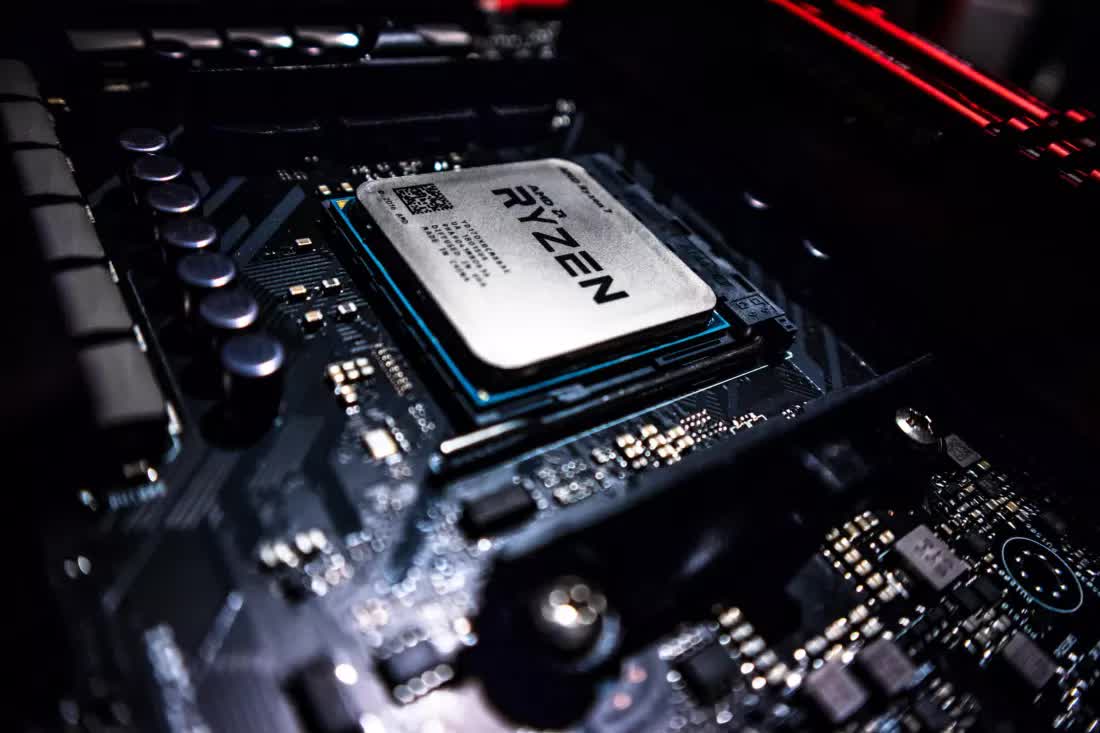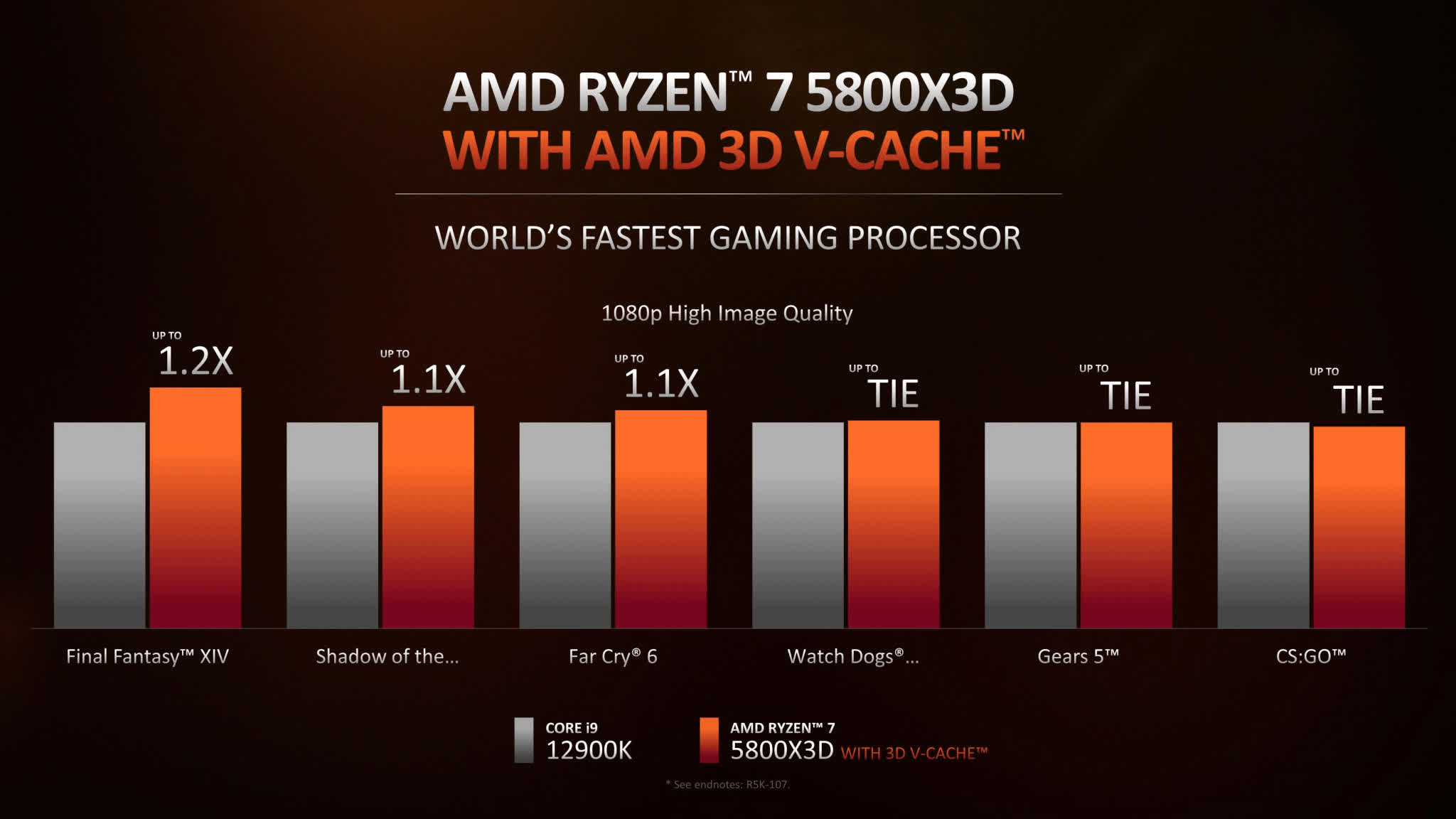Something to look forward to: AMD's highly anticipated Ryzen 7 5800X3D is set to launch on April 20, but we've already seen the first benchmarks for the chip, and it really could take the title of the 'world's fastest gaming CPU,' given that it's 16% faster than the Core i9-12900KS in Shadow of the Tomb Raider.

Peruvian outlet XanxoGaming released the first gaming benchmarks for AMD's Ryzen 7 5800X3D. The CPU utilizes the company's 3D V-Cache technology that stacks a cache die on top of the existing 7nm Zen 3 chiplet, increasing the amount of L3 cache—to 96MB, in the case of the new processor, as opposed to the 32MB used in the standard Ryzen 7 5800X.
Working alongside the developer of frame rate analyzing tool CapFrameX, the publication tested the game at a 1280 x 720 resolution with low settings to remove the graphics card as a potential bottleneck. Needless to say, this doesn't represent actual gaming conditions but is a known way to force a pure CPU test instead of having the graphics card becoming the limitation.
AMD's own comparison chart
Each CPU test system was slightly different, but the surprising part is that the Intel PC was the more powerful, packing a GeForce RTX 3090 Ti and DDR5-4800 C40 memory, while the AMD test bench used a GeForce RTX 3080 Ti with DDR4-3200 C14 memory.
The results show the Ryzen 7 5800X3D managed an average framerate of 231 fps. The Core i9-12900KS hit around 200 fps, and the 12900K/KF came in at about 190 fps.
Tom's Hardware notes that Shadow of the Tomb Raider relies heavily on memory speed and is sensitive to memory latency, giving the Ryzen 7 5800X3D an advantage in this department. It will definitely be interesting to see some apples-to-apples tests with different games when the chip arrives in under two weeks.
Another factor to consider is that the Ryzen 7 5800X3D will be priced at $449 at launch, whereas the Core i9-12900KS, which an overclocker recently took to 7.45 GHz, is around $800. AMD's product will be limited in terms of overclocking because of its V-Cache and chiplet design, but many gamers are unlikely to care when it offers such performance at that price.
https://www.techspot.com/news/94109-amd-ryzen-7-5800x3d-outperforms-intel-12900ks-16.html


